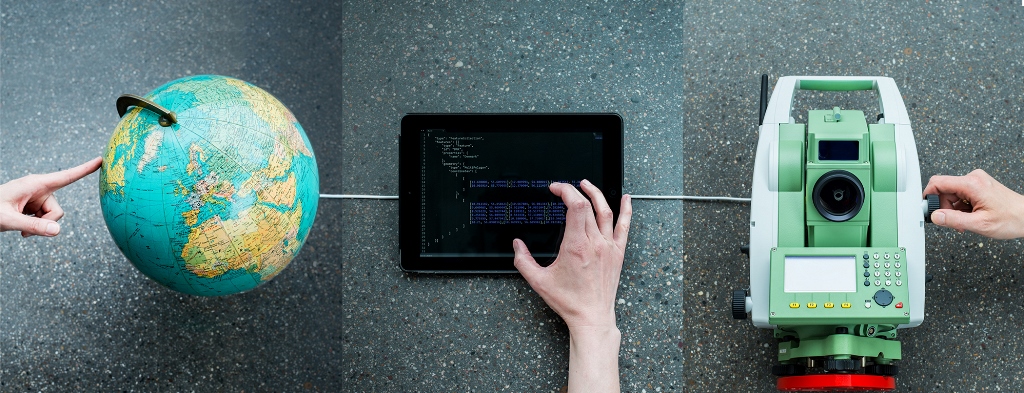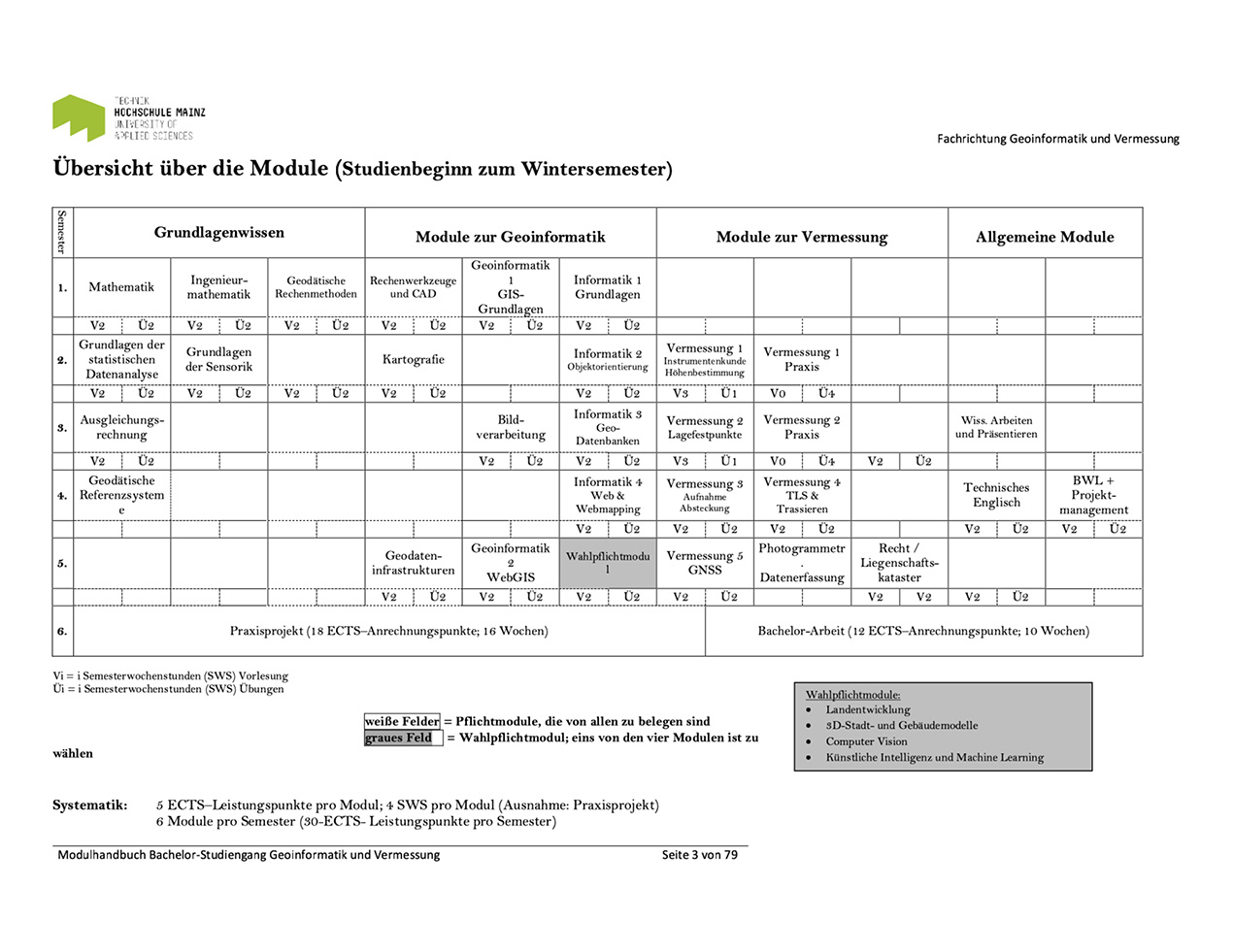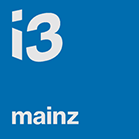Bachelor of Science in Geoinformatics and Surveying
What do Galilei, Google Earth, navigation systems and Pokémon GO have in common? They all work with the geodetic spatial reference.
You will learn what this means and how it works while earning your bachelor's degree in geoinformatics and surveying. The degree program covers the use of various measuring methods such as tachymetry, GPS, photogrammetry or remote sensing. You will also deal with the processing and analysis of the data obtained in this way, for example using modern geoinformation systems (GIS).
Your professional prospects
Career
If you have taken a liking for modern information technology and electronic data processing during your studies, the successful completion of your bachelor's degree makes you a recognised expert for spatial information.
Studying for a master's degree
With the Bachelor of Science (B. Sc.) you can continue your studies in geoinformatics and surveying. Of course, you can also switch directly to the profession. Potential employers include surveying offices, construction companies, utilities and waste disposal companies, suppliers of navigation equipment, manufacturers of surveying instruments, land surveying, cadastral and land consolidation authorities, and soil management and geo-basis information offices.




